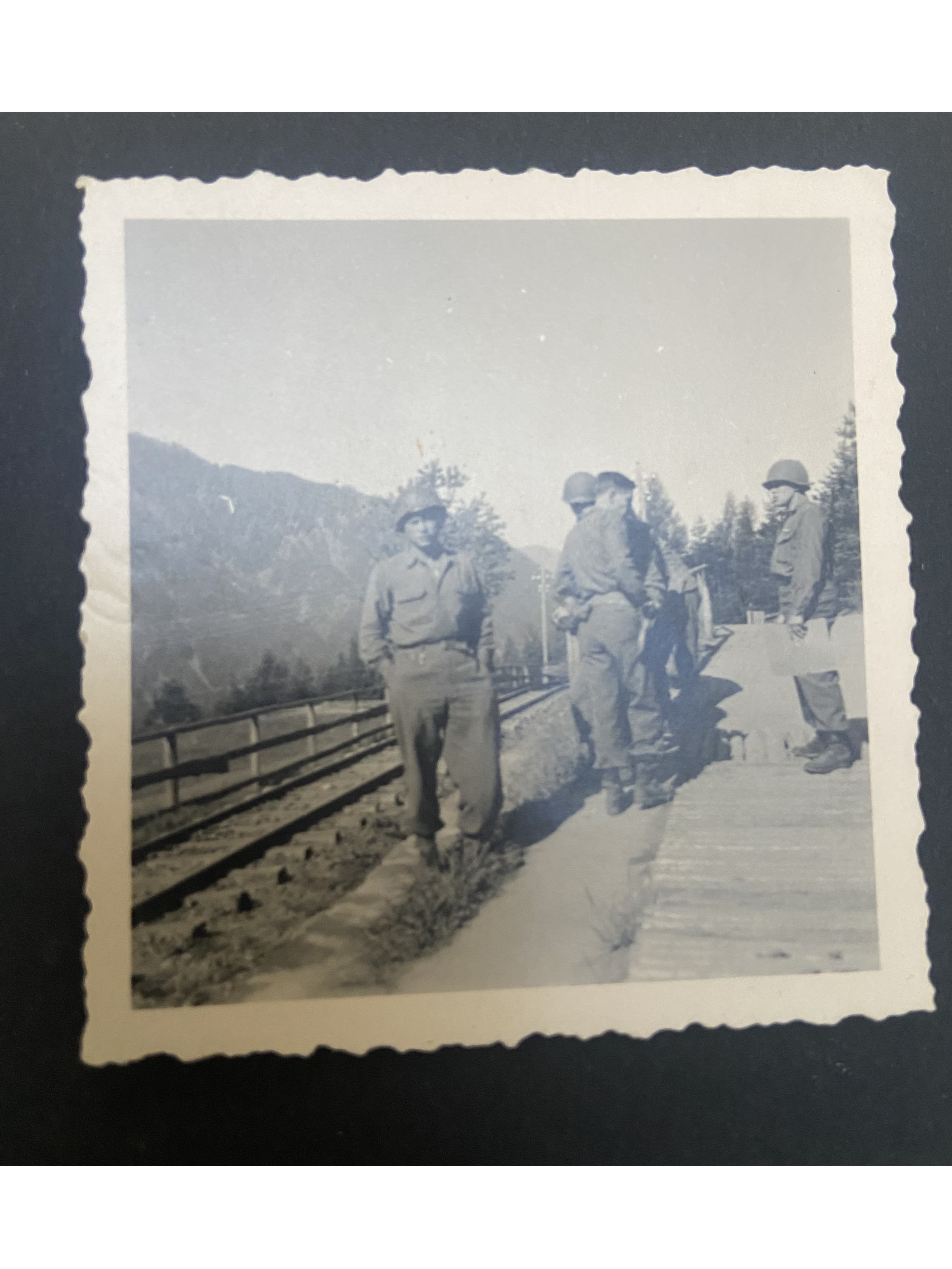My Father, the Immigrant Patriot
After Fleeing Nazi Germany, My Father Joined Up as a US Soldier!
It was August 1938 in Vienna, Austria. Hitler and the Nazi Army had entered and occupied Austria, the Anschluss, in March of that year. Just as they had been in Germany, Jews and other perceived “non-desirables” of the regime were blamed for the weakness of the Austrian society. They were publicly humiliated on the streets of Vienna as well as rounded up and held in detention camps. The Nazi’s first salvo toward “purifying” their subjected population was encouraging as many of these people to immigrate to any country that would accept them.
In the middle of all this, the man and woman who would eventually adopt me at birth in Montreal, Canada, 12 years later—Anne and Moses (“Muni”) Kastner—managed to secure passage to leave Austria and acquire a visa from Nazi Germany. (I still have these visas, stamped with swastikas.) They planned to make their way overland to Portugal, then sail to England, and then sail to New York City. Eventually, they would make their way overland to Mexico City, which was to be their new home.
All went as planned until they got to New York City. The United States was not accepting European refugees at the time, and the immigration authorities in New York thought it was too risky to allow refugees to travel by bus to Mexico because they might “lose themselves” along the way, meaning that they might become illegal immigrants in the US. This situation applied to a number of other passengers on the ship who were traveling on the same type of visa.
Anne, Moses, and the other passengers were ordered to be held in detention on Ellis Island until their cases could be decided. Ellis Island, that famous hub of US immigration in the late nineteenth and early twentieth centuries, had been shut down as an entrance center many years before, but it still served as a limited detention site in cases like this.
After a month or two in detention, nameless bureaucratic immigration officials decided to send these refugees back to Europe, much like the people in the real-life “voyage of the damned” story, made famous by the 1976 movie of that name. At this point, a group of citizens from Newark, New Jersey, heard about their plight. Led by Rabbi Joachim Prinz and Congressman Peter Frelinghuysen, the group intervened with the immigration authorities and asked to interview the detainees. Eventually, the US government agreed to allow this group to sponsor the refugees, which meant posting bonds for them, finding employment for them, and being responsible for them during the coming years. This is how my parents ended up living in Newark and avoided being sent back to Europe and the horrors that would have awaited them there.
Citizen and Soldier
Fast forward five years. As soon as they could, both my parents became US citizens. The first thing my father did after that was to enlist in the US Army. He joined a New Jersey-based National Guard unit that was scheduled for active duty in World War II later that year. He shipped out with his unit in the fall of 1944, a few months after D-Day. I have a book on his unit’s campaign in Europe so I know they worked their way across France, encountering many instances of Nazi resistance and active combat as the Nazis retreated. Eventually, they advanced into southern Germany and the western portion of Austria. I don’t know for sure, but I suspect my father’s fluent German served his unit well, including possibly interrogating POWs. While he never made it as far as Vienna, I can only imagine what it felt like for him to step onto Austrian soil again, this time in a US Army uniform.
The war ended in May 1945, and my father and most of the rest of the US Army in Europe eventually made their way home. Back in Newark, Moses and Anne started a small business, a cleaning and tailoring shop, and then launched another business, a woodworking and cabinet store and shop. They became hard-working immigrant citizens, paid taxes, raised a child (me), and were productive, humble, and very grateful members of the US postwar era.
I’m sharing this story because it needs to be told, and because it is a part of my later life practice of more deeply understanding who I am, by finding out more about the people and forces that shaped me. It is not meant as a comment on today’s politics but to tell a story of a different age and a different time, when America was a different kind of country, and the personal heritage of our family.
